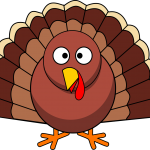What’s Better for Sleep: Melatonin or Food? by Joan Kent, PhD
I won’t keep you in suspense. The answer is food. The reason is fewer side effects. But I’m getting ahead of myself.
Melatonin could be called the sleep hormone. The pineal gland secretes it, darkness stimulates its production, and light inhibits it.
When it’s released, melatonin binds to hormone receptors that regulate the body’s internal clock and circadian rhythms. It’s a sleep-inducer.
Melatonin supplements have become popular in recent years. Some choose it as a substitute for prescription sleep meds. It has also developed a following among travelers who swear by it to prevent or reverse jet lag.
So What’s Wrong with Melatonin?
Apparently, the above claims haven’t been conclusively proven.
Another problem: dosing is vague and unregulated. It’s easy to take too much, which can lead to side effects. Those effects may include headaches, dizziness, daytime sleepiness, stomach cramps, depression, irritability and others.
Chronic use of melatonin can result in down-regulation, a reduction in the number and the sensitivity of existing melatonin receptors. This can render any naturally produced melatonin less effective, and may eventually worsen insomnia.
Over 23 years ago, Richard Wurtman, M.D., issued a warning not to self-medicate with melatonin. (I’m most familiar with Wurtman’s work on insulin resistance and how it affects serotonin and depression. In any case, he’s a reputable source.)
How Can We Increase Melatonin Naturally?
I’ve always believed it’s a mistake to jump into the middle – or in this case, jump to the end – of a biosynthetic chain. It seems to me that’s how and when side effects happen.
This is where food enters the picture.
The Food Formula would be to eat protein foods throughout the day. That’s very important! About 80 to 90 minutes before bed, have an all-starch (‘carb’) snack.
The insulin triggered by the solo starch allows tryptophan to reach the brain. Tryptophan is an amino acid. Amino acids are the building blocks of protein, as you recall from 7th grade biology! (Or not ….)
Anyway, tryptophan from protein is the precursor of serotonin. The brain can and will use tryptophan to make serotonin. And serotonin is the precursor of melatonin. It’s that straight-forward.
The process is natural – more natural than just taking melatonin. And it starts at the “beginning” of the chain – with protein foods during the day to provide tryptophan and ending with starch at night when we want to sleep.
The best part of this method is we can bypass the side effects. And that’s what makes me recommend food over melatonin supplements.
But Aren’t Carbs Bad?
For those who shun carbs, I’d recommend being realistic. It doesn’t take very much starch to trigger a little insulin and change brain chemistry. And it’s much more natural than leaping over the whole process and landing on melatonin supplements – with all those side effects and unproven benefits.
If gluten is your concern, gluten-free starches are everywhere: quinoa, sweet potatoes, winter squash, potatoes, rice, turnips, and many others.
Why not give this sleep method a try? It’s quite effective.
If you’d like more tips on sleep, health, cravings, and mood swings, perfect! That’s what I do. Just visit www.LastResortNutrition.com and grab your free Empower Me Consult. Find out how easy it is to make a few small food changes that can bring big health changes for you.
Brought to you by Dr. Joan Kent, best-selling author of Stronger Than Sugar: 7 Simple Steps to Defeat Sugar Addiction, Lift Your Mood, and Transform Your Health.



